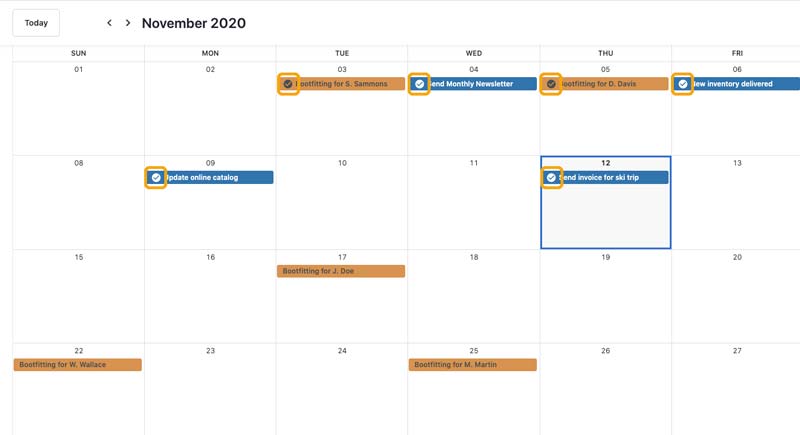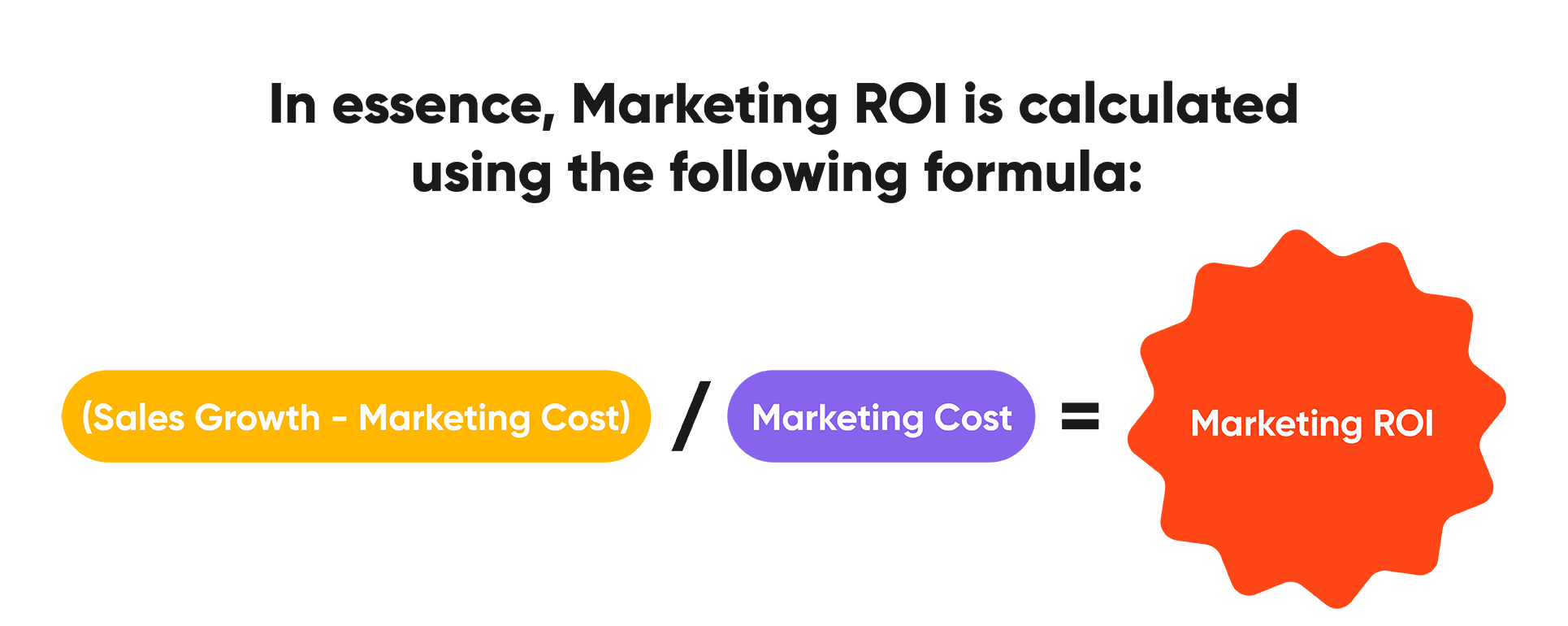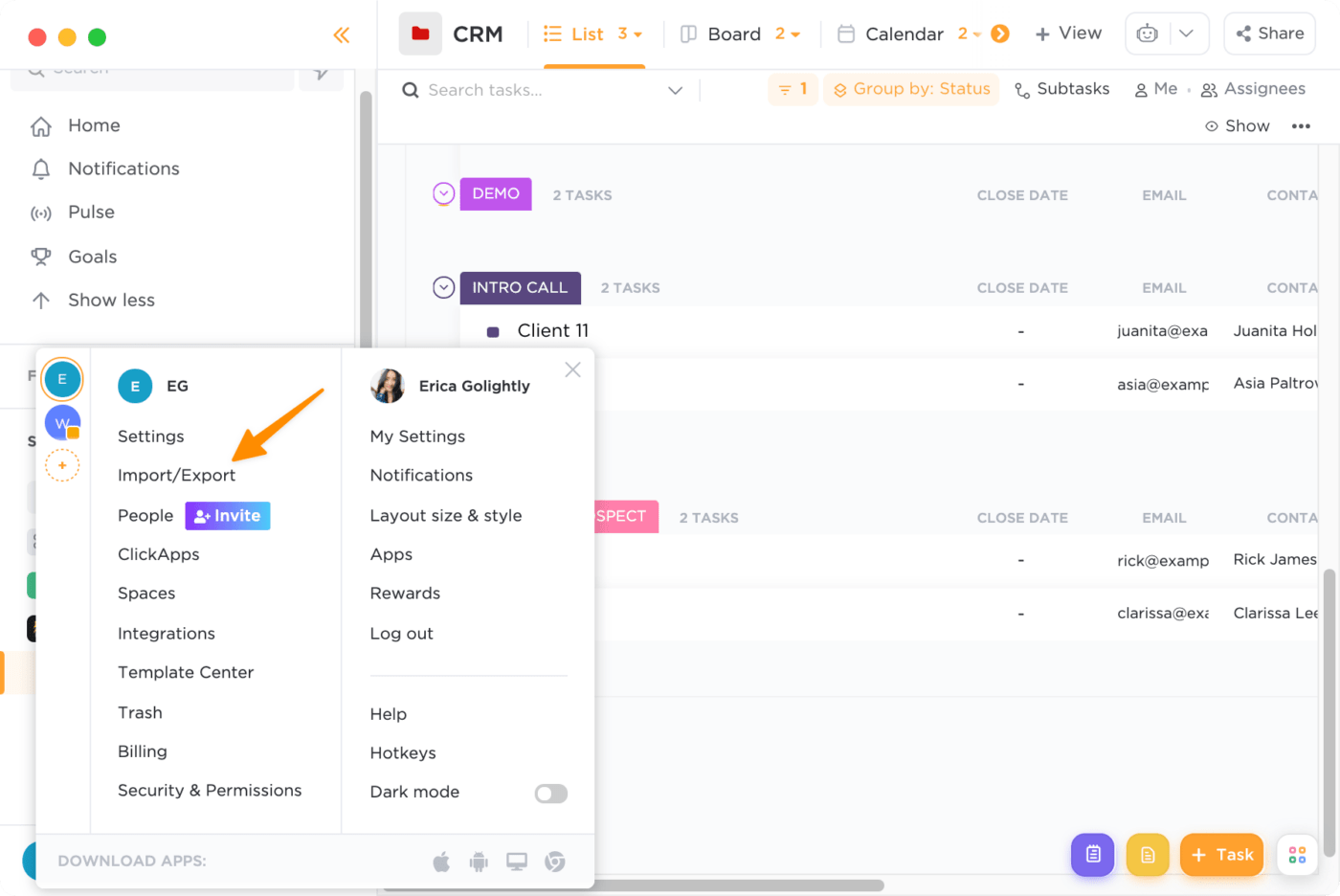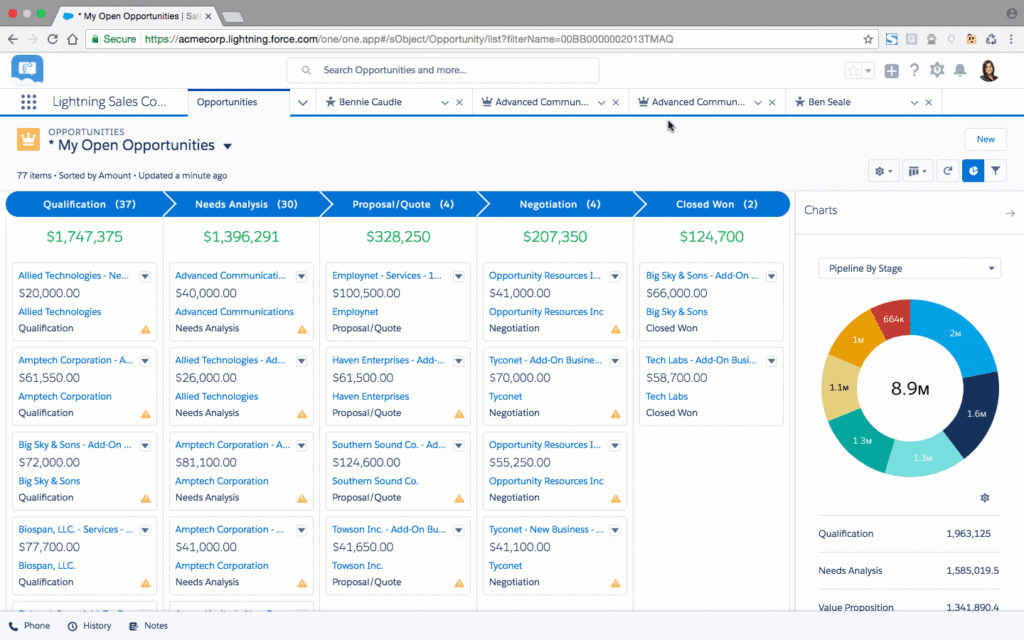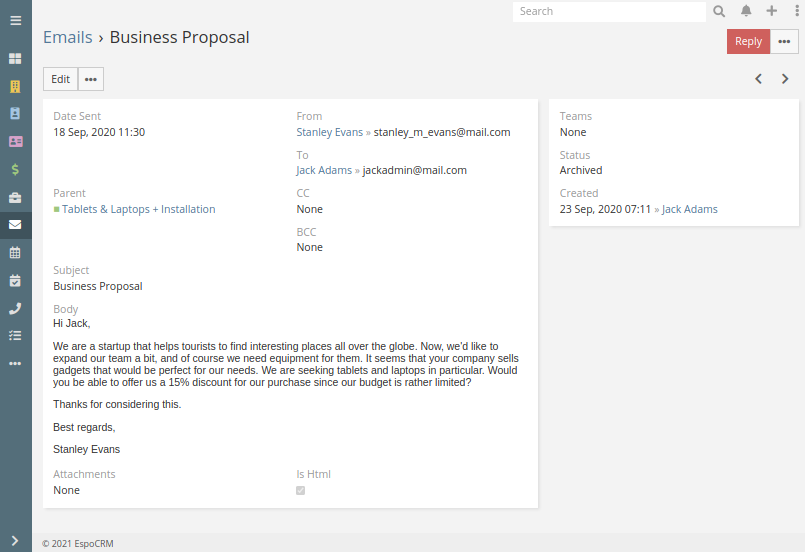
CRM Marketing for Beginners: Your Complete Guide to Customer Relationship Mastery
Starting a new venture can feel like navigating uncharted waters. You’re excited, maybe a little nervous, and definitely have a lot on your plate. One of the most crucial aspects of building a successful business, especially in today’s competitive landscape, is understanding and nurturing your relationships with customers. That’s where Customer Relationship Management (CRM) marketing comes in. If you’re a beginner, the term might sound intimidating, but trust me, it’s more approachable than you think. This comprehensive guide will break down everything you need to know about CRM marketing, helping you understand its core principles, benefits, and how to implement it effectively. Get ready to transform your customer interactions and boost your business growth!
What is CRM Marketing?
At its heart, CRM marketing is a strategic approach to managing and analyzing customer interactions and data throughout the customer lifecycle. It’s about using technology and strategies to understand your customers better, anticipate their needs, and build stronger, more profitable relationships. Think of it as the central nervous system of your customer interactions. It gathers, organizes, and analyzes all the information related to your customers, allowing you to make informed decisions and personalize your marketing efforts.
CRM marketing isn’t just about collecting data; it’s about using that data to create meaningful experiences. It involves:
- Collecting Customer Data: Gathering information from various touchpoints, such as website interactions, email campaigns, social media, and sales interactions.
- Analyzing Customer Behavior: Understanding how customers interact with your brand, their preferences, purchase history, and overall engagement.
- Segmenting Customers: Grouping customers based on shared characteristics to tailor marketing messages and offers.
- Personalizing Marketing Campaigns: Delivering relevant content and offers to specific customer segments.
- Automating Marketing Processes: Streamlining repetitive tasks, such as email marketing and lead nurturing, to improve efficiency.
- Measuring and Optimizing: Tracking the performance of your CRM marketing efforts and making adjustments to improve results.
Why is CRM Marketing Important? The Benefits
So, why should you care about CRM marketing? The benefits are numerous and can significantly impact your business’s bottom line. Here are some of the key advantages:
Improved Customer Relationships
CRM marketing enables you to build stronger customer relationships by providing personalized experiences. When you understand your customers’ needs and preferences, you can tailor your interactions to be more relevant and valuable. This leads to increased customer satisfaction, loyalty, and advocacy. Think about it: would you rather do business with a company that treats you like a number, or one that remembers your preferences and anticipates your needs? The answer is clear.
Increased Sales and Revenue
By understanding your customers better, you can identify new sales opportunities and increase revenue. CRM systems help you track leads, manage sales pipelines, and identify upselling and cross-selling opportunities. Personalized marketing campaigns are more effective at converting leads into customers and driving repeat purchases. CRM empowers your sales team by providing them with the information and tools they need to close deals and increase revenue.
Enhanced Customer Retention
Customer retention is critical for long-term business success. CRM marketing helps you retain customers by providing excellent customer service, personalized experiences, and proactive communication. By tracking customer interactions and identifying potential issues, you can resolve problems quickly and prevent customers from churning. Happy customers are loyal customers, and loyal customers are the foundation of a successful business.
Improved Marketing ROI
CRM marketing allows you to optimize your marketing efforts and get a better return on investment (ROI). By tracking the performance of your campaigns and analyzing customer data, you can identify what’s working and what’s not. This enables you to make data-driven decisions and allocate your marketing budget more effectively. You’ll waste less money on ineffective campaigns and focus on the strategies that deliver the best results.
Increased Efficiency and Productivity
CRM systems automate many of the repetitive tasks associated with marketing and sales, freeing up your team to focus on more strategic activities. This leads to increased efficiency and productivity, allowing you to get more done with less effort. Automated workflows, such as email marketing and lead nurturing, streamline processes and ensure that no opportunities are missed. Time is money, and CRM helps you make the most of both.
Better Data-Driven Decision Making
CRM provides a centralized repository of customer data, which allows you to make better, more informed decisions. You can track key metrics, such as customer lifetime value, customer acquisition cost, and conversion rates, to gain a deeper understanding of your business performance. This data-driven approach helps you identify areas for improvement and make strategic decisions that drive growth. No more guessing games – CRM provides the insights you need to succeed.
Key Components of a CRM Marketing Strategy
Now that you understand the benefits, let’s delve into the key components of a successful CRM marketing strategy:
1. Data Collection and Management
The foundation of any CRM marketing strategy is data. You need to collect and manage customer data effectively. This involves:
- Identifying Data Sources: Determine where you’ll collect customer data, such as your website, social media, email campaigns, sales interactions, and customer service interactions.
- Choosing a CRM System: Select a CRM system that meets your business needs and integrates with your existing tools. There are many options available, from free and open-source solutions to enterprise-level platforms.
- Data Entry and Organization: Implement a system for entering and organizing customer data in a consistent and accurate manner.
- Data Cleaning and Maintenance: Regularly clean and update your data to ensure accuracy and relevance. This includes removing duplicate records, correcting errors, and updating contact information.
- Data Security and Privacy: Implement security measures to protect customer data and comply with privacy regulations, such as GDPR and CCPA.
2. Customer Segmentation
Once you have collected customer data, the next step is to segment your customers based on shared characteristics. This allows you to tailor your marketing messages and offers to specific groups of customers. Common segmentation criteria include:
- Demographics: Age, gender, location, income, education, etc.
- Psychographics: Lifestyle, values, interests, attitudes, etc.
- Behavior: Purchase history, website activity, email engagement, social media activity, etc.
- Needs: What problems customers are trying to solve.
- Customer Lifetime Value (CLTV): Value a customer brings to your business over their relationship with you.
By segmenting your customers, you can create targeted marketing campaigns that resonate with each group, increasing the likelihood of conversions.
3. Personalized Marketing Campaigns
Personalization is key to effective CRM marketing. Tailor your marketing messages and offers to specific customer segments. This can include:
- Personalized Emails: Send emails that address customers by name, recommend products based on their purchase history, and offer exclusive deals.
- Targeted Website Content: Customize the content on your website based on a customer’s browsing history and preferences.
- Personalized Advertising: Target specific customer segments with ads on social media and other platforms.
- Customized Offers: Create offers that are relevant to each customer segment’s needs and interests.
Personalization shows your customers that you understand their needs and value their business. It fosters a sense of connection and builds trust.
4. Marketing Automation
Marketing automation streamlines repetitive tasks and allows you to nurture leads and customers more effectively. This can include:
- Email Marketing Automation: Set up automated email sequences for lead nurturing, welcome emails, abandoned cart emails, and more.
- Lead Scoring: Assign points to leads based on their engagement and behavior to prioritize your sales efforts.
- Workflow Automation: Automate tasks such as updating customer records, sending notifications, and creating reports.
- Social Media Automation: Schedule social media posts and track your social media performance.
Automation saves time, improves efficiency, and ensures that you stay connected with your customers throughout the customer lifecycle.
5. Customer Service and Support
Excellent customer service is crucial for building strong customer relationships. Use your CRM system to:
- Track Customer Interactions: Keep a record of all customer interactions, including emails, phone calls, and support tickets.
- Provide Personalized Support: Use customer data to provide personalized support and resolve issues quickly.
- Offer Self-Service Options: Provide a knowledge base, FAQs, and other self-service options to empower customers.
- Gather Customer Feedback: Collect customer feedback through surveys and reviews to improve your products and services.
Exceptional customer service builds loyalty and encourages customers to recommend your brand to others.
6. Reporting and Analysis
Regularly track and analyze your CRM marketing efforts to measure their effectiveness. This involves:
- Setting Key Performance Indicators (KPIs): Identify the metrics that are most important to your business, such as conversion rates, customer acquisition cost, and customer lifetime value.
- Tracking Campaign Performance: Monitor the performance of your marketing campaigns, including open rates, click-through rates, and conversion rates.
- Analyzing Customer Behavior: Analyze customer data to identify trends and insights that can inform your marketing strategies.
- Generating Reports: Create reports to visualize your data and share your findings with your team.
- Making Adjustments: Continuously monitor and optimize your marketing efforts based on your data and results.
Reporting and analysis provide valuable insights that can help you improve your CRM marketing strategy and drive better results.
Choosing the Right CRM System for Beginners
Selecting the right CRM system is a crucial step in implementing a successful CRM marketing strategy. There are many options available, each with its own features, pricing, and target audience. Here’s what to consider when choosing a CRM system as a beginner:
1. Ease of Use
For beginners, ease of use is paramount. Choose a CRM system that is intuitive and easy to navigate. Look for a system with a user-friendly interface, clear instructions, and helpful tutorials. You don’t want to spend weeks trying to figure out how to use the software. The simpler the system, the faster you’ll be up and running and the more likely you are to use it effectively. Consider a system that offers drag-and-drop functionality, customizable dashboards, and mobile access, allowing you to manage your customer relationships from anywhere.
2. Features
Consider the features you need to get started. Focus on core functionalities like contact management, lead tracking, sales pipeline management, and basic email marketing. Don’t get overwhelmed by advanced features you may not need immediately. As you grow, you can always upgrade to a more sophisticated system. Make sure the CRM integrates with other tools you use, such as your email marketing platform, social media channels, and accounting software. This integration will streamline your workflow and eliminate the need for manual data entry.
3. Scalability
Choose a CRM system that can grow with your business. As your business expands, you’ll need a CRM that can handle more data, users, and features. Look for a system that offers different pricing plans and tiers. This allows you to start with a basic plan and upgrade as your needs evolve. Consider a system with a flexible architecture that can integrate with other applications. This will allow you to customize the system to meet your specific needs. Scalability ensures that your CRM investment will last for the long haul.
4. Pricing
Pricing is a significant factor, especially for beginners. There are free, freemium, and paid CRM systems available. Start with a free or low-cost option if you’re on a tight budget. Understand the pricing model (per user, per feature, etc.) and choose a plan that fits your budget. Consider the value you get for the price. Look for a system that offers a good balance of features and affordability. Remember to factor in the cost of training and support, as these can add to the overall cost. Evaluate the long-term cost and ensure the system provides a good return on your investment.
5. Integration
Check for integration capabilities with other tools and platforms you already use. This can save you time and effort. Consider integrations with your email marketing platform, social media channels, accounting software, and website. Integration streamlines your workflow, eliminates the need for manual data entry, and provides a more holistic view of your customer interactions. Make a list of the tools you use and then research which CRM systems offer seamless integration. This will ensure a smooth transition and maximize your productivity.
6. Customer Support
Choose a CRM system that offers good customer support. Look for a system that provides helpful documentation, tutorials, and responsive customer service. Consider the availability of support channels, such as email, phone, and chat. Read reviews to see what other users say about the quality of customer support. A reliable support system can be invaluable when you encounter issues or have questions. This will allow you to resolve problems quickly and continue using the CRM system effectively.
7. Security
Data security is essential. Ensure the CRM system has robust security measures in place to protect your customer data. Look for features like data encryption, two-factor authentication, and regular security audits. Choose a system that complies with relevant data privacy regulations, such as GDPR and CCPA. This will protect your customers’ information and maintain your reputation. Security is not negotiable. Prioritize a CRM that takes data security seriously.
Step-by-Step Guide to Implementing CRM Marketing for Beginners
Ready to get started? Here’s a step-by-step guide to implementing CRM marketing, designed specifically for beginners:
1. Define Your Goals
Before you start, define your goals for CRM marketing. What do you want to achieve? Examples include:
- Increasing sales revenue
- Improving customer retention rates
- Enhancing customer satisfaction
- Generating more leads
- Improving marketing ROI
Having clear goals will help you choose the right CRM system, track your progress, and measure your success. Set SMART goals (Specific, Measurable, Achievable, Relevant, and Time-bound) to keep your focus.
2. Choose Your CRM System
Based on your needs and budget, select a CRM system that’s right for you. Consider the factors discussed above, such as ease of use, features, scalability, and pricing. Start with a free trial to test the system and see if it’s a good fit. Don’t be afraid to try out a few different options before making a final decision. Compare features, pricing, and customer reviews to find the best match for your business.
3. Set Up Your CRM System
Once you’ve chosen your CRM system, set it up. This involves:
- Adding Users: Create user accounts for your team members and assign roles and permissions.
- Customizing Settings: Configure the system to meet your specific needs, such as setting up your sales pipeline and defining your lead stages.
- Integrating with Other Tools: Connect your CRM system with other tools you use, such as your email marketing platform and social media channels.
Take the time to explore all the features and settings to ensure you’re getting the most out of your CRM.
4. Import Your Data
Import your existing customer data into your CRM system. This includes contact information, purchase history, and any other relevant data. Ensure your data is clean and organized before importing it. Remove duplicate records, correct errors, and update contact information. If you have a large amount of data, consider breaking it down into smaller batches to make the process more manageable. Verify the accuracy of the data after importing it to ensure it’s correct.
5. Segment Your Customers
Segment your customers based on shared characteristics. This will allow you to tailor your marketing messages and offers to specific groups of customers. Use the segmentation criteria discussed above, such as demographics, psychographics, and behavior. Start with a few basic segments and add more as you gather more data. Think about your ideal customer profiles and how you can group your customers to deliver the most relevant experiences.
6. Create Personalized Marketing Campaigns
Develop personalized marketing campaigns for each customer segment. This can include personalized emails, targeted website content, and customized offers. Use your CRM data to tailor your messages and offers to each customer’s needs and interests. Test different versions of your campaigns to see which ones perform best. Use A/B testing to compare different subject lines, content, and calls to action. Personalization is key to engaging your customers and driving conversions.
7. Automate Your Marketing Processes
Implement marketing automation to streamline your processes. Set up automated email sequences for lead nurturing, welcome emails, and abandoned cart emails. Automate tasks such as updating customer records and sending notifications. Automation saves time and improves efficiency. Identify the repetitive tasks that you can automate and create workflows to handle them. Automation frees up your team to focus on more strategic activities.
8. Track and Analyze Your Results
Regularly track and analyze your CRM marketing efforts to measure their effectiveness. Set KPIs and monitor the performance of your campaigns. Analyze customer data to identify trends and insights. Use your CRM system’s reporting features to create reports and visualize your data. Based on your analysis, make adjustments to your marketing strategies to improve your results. Continuous monitoring and optimization are key to success.
9. Provide Excellent Customer Service
Use your CRM system to provide excellent customer service. Track customer interactions, provide personalized support, and resolve issues quickly. Offer self-service options, such as a knowledge base and FAQs. Collect customer feedback through surveys and reviews. Excellent customer service builds loyalty and encourages customers to recommend your brand to others. Make sure your customer service team is trained on using the CRM system to its full potential.
10. Train Your Team
Train your team on how to use your CRM system effectively. Provide them with the knowledge and skills they need to manage customer data, create marketing campaigns, and provide excellent customer service. Offer ongoing training and support to ensure that your team stays up-to-date on the latest features and best practices. A well-trained team will be more productive and efficient. Invest in the tools and resources your team needs to succeed.
Common Mistakes to Avoid in CRM Marketing
Even with the best intentions, beginners can make mistakes. Here are some common pitfalls to avoid:
1. Not Defining Clear Goals
Without clear goals, it’s difficult to measure your success and make informed decisions. Define your goals before you start implementing your CRM marketing strategy. Set SMART goals to keep your focus. Regularly review your goals and make adjustments as needed. A lack of focus can lead to wasted time and resources.
2. Choosing the Wrong CRM System
Selecting the wrong CRM system can be a costly mistake. Take your time to research different options and choose a system that meets your needs and budget. Consider factors such as ease of use, features, scalability, and integration. Make sure the system is a good fit for your business. Choosing the wrong system can lead to frustration and wasted effort. Get a demo or free trial to test the system before committing to a paid plan.
3. Not Cleaning Your Data
Dirty data can lead to inaccurate insights and ineffective marketing campaigns. Clean your data regularly to ensure accuracy and relevance. Remove duplicate records, correct errors, and update contact information. Invest in data cleansing tools if needed. A well-maintained database is essential for making informed decisions. Neglecting your data can result in wasted time and resources.
4. Not Segmenting Your Customers
Sending the same message to everyone can be ineffective. Segment your customers to tailor your marketing messages and offers to specific groups. Use the segmentation criteria discussed above, such as demographics, psychographics, and behavior. The more targeted your messages, the more likely you are to get results. Without segmentation, you’re missing out on opportunities to connect with your customers. Not personalizing your content can lead to a drop in engagement.
5. Not Personalizing Your Campaigns
Customers want to feel valued. Personalize your marketing campaigns to show that you understand their needs and interests. Use their name, recommend products based on their purchase history, and offer exclusive deals. Personalization builds trust and fosters a sense of connection. Generic messages are less likely to resonate with your customers. Personalization is no longer optional; it’s expected.
6. Not Automating Your Processes
Manual processes are time-consuming and inefficient. Automate your marketing processes to streamline your workflow and save time. Set up automated email sequences, lead scoring, and workflow automation. Automation allows you to focus on more strategic activities. Automating repetitive tasks frees up your team to focus on more strategic activities. Automation is critical for scaling your marketing efforts.
7. Not Tracking Your Results
Without tracking your results, you won’t know what’s working and what’s not. Regularly track and analyze your CRM marketing efforts to measure their effectiveness. Set KPIs and monitor the performance of your campaigns. Use your CRM system’s reporting features to visualize your data. Not tracking your results means you’re flying blind. Measurement is essential for continuous improvement. Without data, you’re just guessing.
8. Neglecting Customer Service
Excellent customer service is crucial for building strong customer relationships. Use your CRM system to provide personalized support and resolve issues quickly. Offer self-service options and collect customer feedback. Neglecting customer service can lead to customer churn and negative reviews. Customer service is not just a department; it’s a mindset. Make sure your customer service team is empowered to solve customer problems. Neglecting customer service can damage your brand reputation.
9. Not Training Your Team
A well-trained team will be more productive and efficient. Train your team on how to use your CRM system effectively. Provide them with the knowledge and skills they need to manage customer data, create marketing campaigns, and provide excellent customer service. A lack of training can lead to frustration and wasted time. Invest in ongoing training to keep your team up-to-date on the latest features and best practices. Without proper training, your team won’t be able to maximize the benefits of the CRM system.
10. Overcomplicating Things
Don’t try to do too much too soon. Start with the basics and gradually add more features and functionalities as you become more comfortable. Focus on the core principles of CRM marketing and build from there. Overcomplicating things can lead to confusion and overwhelm. Keep it simple and focus on the essentials. Start small and scale up as you gain experience. Don’t try to boil the ocean.
CRM Marketing: The Future
CRM marketing is constantly evolving, and staying ahead of the curve is essential for long-term success. Here’s a glimpse into the future of CRM marketing:
Artificial Intelligence (AI) and Machine Learning (ML)
AI and ML are transforming CRM marketing by automating tasks, providing deeper insights, and personalizing customer experiences. AI can analyze vast amounts of data to identify patterns and predict customer behavior. This enables businesses to make more informed decisions and create more effective marketing campaigns. AI-powered chatbots can provide instant customer service, freeing up human agents to focus on more complex issues. Machine learning algorithms can personalize product recommendations, optimize marketing messages, and automate lead scoring. AI and ML are the future of CRM marketing, and businesses that embrace these technologies will have a significant competitive advantage.
Enhanced Personalization
Personalization will become even more sophisticated. CRM systems will use data from multiple sources to create highly personalized experiences. This includes personalizing website content, email messages, and advertising. Dynamic content, which changes based on a customer’s behavior and preferences, will become the norm. Customers will expect personalized experiences, and businesses that fail to deliver them will lose out. The key to success will be using data to understand each customer’s individual needs and preferences and tailoring the customer experience accordingly.
Omnichannel Marketing
Customers interact with brands across multiple channels, including email, social media, websites, and mobile apps. Omnichannel marketing provides a seamless and consistent experience across all these channels. CRM systems will integrate with all these channels to provide a unified view of the customer. This allows businesses to deliver consistent messaging and personalized experiences regardless of the channel the customer is using. Omnichannel marketing is essential for building strong customer relationships and driving conversions. The goal is to provide a consistent brand experience across all touchpoints.
Focus on Customer Experience (CX)
Customer experience will become the primary differentiator for businesses. CRM marketing will focus on creating exceptional customer experiences. This includes providing excellent customer service, personalized interactions, and seamless omnichannel experiences. Businesses will prioritize building long-term relationships with their customers. Customer experience is not just about providing a good product or service; it’s about creating a positive and memorable experience at every touchpoint. Businesses that prioritize customer experience will gain a significant competitive advantage.
Data Privacy and Security
Data privacy and security will become even more critical. Businesses will need to comply with increasingly stringent data privacy regulations, such as GDPR and CCPA. Transparency and trust will be essential for building customer relationships. CRM systems will need to provide robust security measures to protect customer data. Customers will be more aware of their data privacy rights and will expect businesses to respect them. Businesses that prioritize data privacy and security will gain a competitive advantage and build customer trust.
Final Thoughts
CRM marketing is a powerful tool for building strong customer relationships, increasing sales, and driving business growth. By understanding the core principles, benefits, and components of CRM marketing, you can create a strategy that works for your business. Remember to start with the basics, choose the right CRM system, and continuously track and optimize your efforts. Embrace the future of CRM marketing by embracing AI, personalization, omnichannel marketing, and customer experience. With a well-executed CRM marketing strategy, you can transform your customer interactions and achieve long-term success.
Ready to take your customer relationships to the next level? Start implementing the strategies outlined in this guide today. You’ll be amazed at the difference CRM marketing can make!

